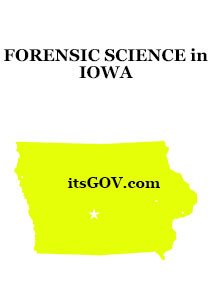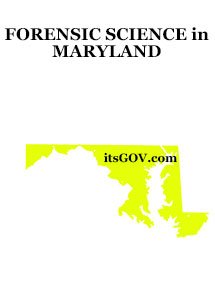Forensic Science
Forensic science is the scientific method of gathering and examining information about the past which is then used in a court of law and it requires very intense training and formal education.If you made it this far, though, congratulations! You’re taking the first steps in joining a very rewarding profession and itsGOV is here to guide you through what you need to know and what you need to do to join a forensic science program in Wisconsin.
Depending on the type of forensic science practiced, different degrees and educational backgrounds may help a candidate get a job and excel in this field. Regarding formal education, requirements vary across jobs, but you should definitely have a solid background in mathematics, biology and chemistry.
The National Institute of Justice, a division of the U.S. Department of Justice, offers guidelines for model undergraduate and graduate forensic science degree programs. According to the American Academy of Forensic Science, strong programs should offer a curriculum that concentrates on scientific writing, laboratory skills, public speaking, and computer software application training.
Forensic Science Requirements in Wisconsin
A bachelor’s degree in forensic science or a natural science is a requirement for getting a job as a forensic scientist. A Bachelor of Science degree in chemistry is recommended for persons interested in specializing in toxicology, the analysis of bodily specimens for the presence of poison or other harmful chemicals. Individuals wishing to focus on analyzing and comparing DNA samples from blood, sweat, saliva, semen or other bodily fluids would be wise to major in a field like biochemistry or molecular genetics.
“AFIS Specialist” is the only scientific job at the Wisconsin crime labs that does not require a bachelor’s degree. These technicians use the Automated Fingerprint Identification System to search, catalog, match and store fingerprints, palm prints, latent prints and other demographic data as well as to interface with the FBI database. The job requires a high school diploma (or its equivalent) and FBI certified AFTS training which is offered online by a number of schools.
Forensic Science Training in Wisconsin
There are currently 130 forensic scientists working in Wisconsin and the Bureau of Labor Statistics predicts that number will experience a 19 percent increase by 2020. Most forensic scientists in Wisconsin are employed by the state; however, other potential employers include medical facilities, colleges/universities and private research or analytical laboratories. Wisconsin has at least 23 four-year colleges/universities offering bachelor’s degrees in the natural sciences and at least three of these have programs in forensic science. The primary state university has campuses in 13 cities making it convenient for people living almost anywhere in the state to attend. At least one university offers three forensic science certificates that can be earned in addition to a bachelor’s degree.
Forensic Science Salary in Wisconsin
In Wisconsin, the average mean wages for forensic science technicians were $55,070, as of 2012 BLS data. This falls just below the nationwide average for the job, which was $55,730 as of 2012. However, depending on the time spent on the job and level of education, forensic science technicians can earn varying levels of pay. For example, those in the lowest 10 percent of pay earned as little as $32,200 while those in the highest 10 percent earned up to $85,210, according to 2012 data. Forensic science technicians could look for jobs in the state’s large cities of Milwaukee, Madison and Green Bay, but also could find jobs in smaller towns and municipalities.
Forensic Science Schools and Colleges in Wisconsin
Bachelor’s Degree Programs
| University | Fox Valley Technical College, Forensic Science B.S. |
| Duration | 4 years |
| Type | Full time, Part time |
| Tuition and fees | $6,928 in-state, $19,354 per year |
| Program link |
| University | Caroll University, Waukesha, Forensic Science B.S. |
| Duration | 4 years |
| Type | Full time, Part time |
| Tuition and fees | $27,850 per year |
| Program link |
| University | Marian University, Font du Lac, Forensic Science B.S. |
| Duration | 4 years |
| Type | Full time, Part time |
| Tuition and fees | $38, 540 per year |
| Program link |
| University | University of Wisconsin-Milwaukee, Forensic Toxicology B.S. |
| Duration | 4 years |
| Type | Full time, Part time |
| Tuition and fees | $9, 300 per year |
| Program link |




